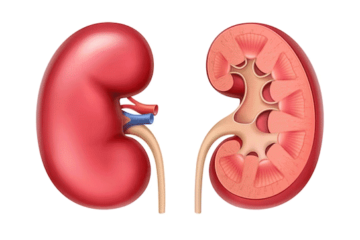Maintaining cardiovascular health is essential for overall well-being, and while a balanced diet is the cornerstone of heart health, many people turn to multivitamins such as Cellsentials to fill nutritional gaps when their diet is less than perfect. But how effective are these supplements in supporting your heart? In this guide, we’ll explore the role of multivitamins in cardiovascular support, the key nutrients to look for, and how they can complement a heart-healthy lifestyle.
The Connection Between Nutrition and Heart Support
Your heart is a powerhouse, tirelessly pumping blood throughout your body. To keep it functioning well, it needs a steady supply of nutrients, many of which are found in the foods you eat. However, even the most health-conscious individuals can sometimes fall short of eating the perfect diet and getting all the essential vitamins and minerals. This is where multivitamins come into play, offering a convenient way to ensure your body—and your heart—receives the nutrients it needs.
Key Nutrients for a Well Supported Heart
When it comes to cardiovascular health, not all vitamins and minerals are created equal. Specific nutrients play a critical role in maintaining heart function. Additionally, antioxidants like vitamins C and E help support your heart by aiding the body as it works to reduce oxidative stress.
Omega-3 Fatty Acids: More Than Just a Vitamin
While not a vitamin, omega-3 fatty acids deserve a special mention in any discussion about heart health. Many multivitamins now include omega-3s, making it easier for you to support your heart without needing a separate supplement.
The Role of Vitamin D in Heart Health
Vitamin D, often referred to as the “sunshine vitamin,” plays a significant role in maintaining cardiovascular health. This essential nutrient helps regulate calcium levels in the blood, which is crucial for maintaining strong and healthy arteries. Unfortunately, many people have insufficient levels of vitamin D, especially those who live in regions with limited sunlight. Including a multivitamin that provides an adequate dose of vitamin D can be an effective way to support your heart health, particularly during the winter months when sunlight exposure is minimal.
Do Multivitamins Make a Difference?
The question of whether multivitamins can genuinely impact cardiovascular health is still debated in the medical community. However, it’s essential to recognize that multivitamins are not a magic bullet. They work best as part of a comprehensive approach to heart health that includes a balanced diet, regular exercise, and lifestyle changes like quitting smoking.
Choosing the Right Multivitamin
Not all multivitamins are created equal, so it’s best to choose a product that meets your specific needs. Look for a multivitamin that includes key nutrients like B vitamins, vitamin D, magnesium, and omega-3s. Additionally, consider your age, gender, and any existing health conditions when selecting a multivitamin. Consulting with a healthcare provider can also help you make the best choice for your heart health.
A Balanced Approach to Heart Health
Incorporating a multivitamin into your daily routine can be a simple yet effective way to support your cardiovascular health. However, it’s important to remember that supplements should complement—not replace—a heart-healthy lifestyle. By focusing on a balanced diet, regular physical activity, and other positive habits, you can give your heart the best chance of staying strong and healthy for years to come.
Taking care of your heart is a lifelong commitment, and while multivitamins can play a supportive role, they are just one piece of the puzzle. Prioritize your overall well-being, and your heart will thank you.
Keep an eye for more news & updates on Gossips!




